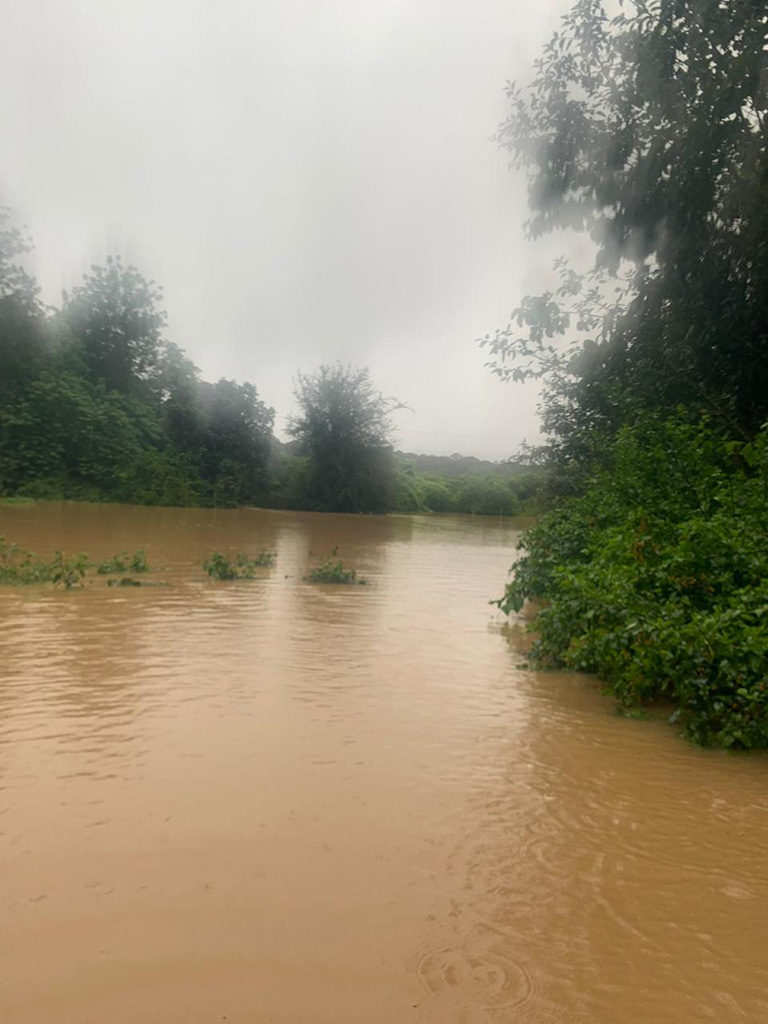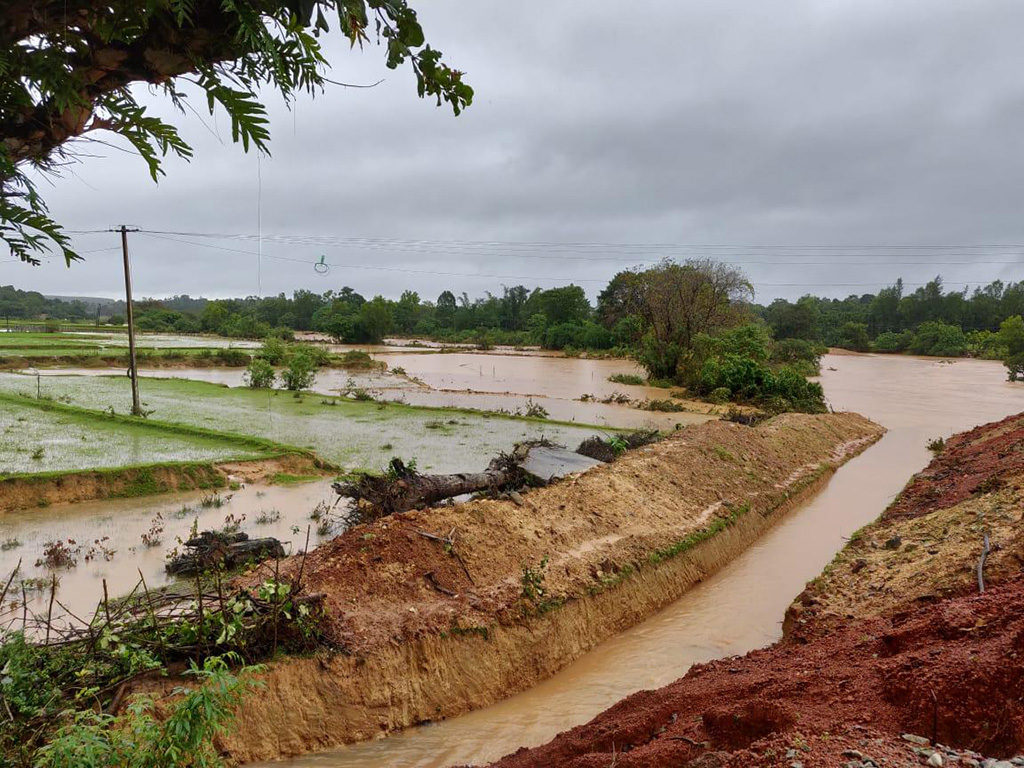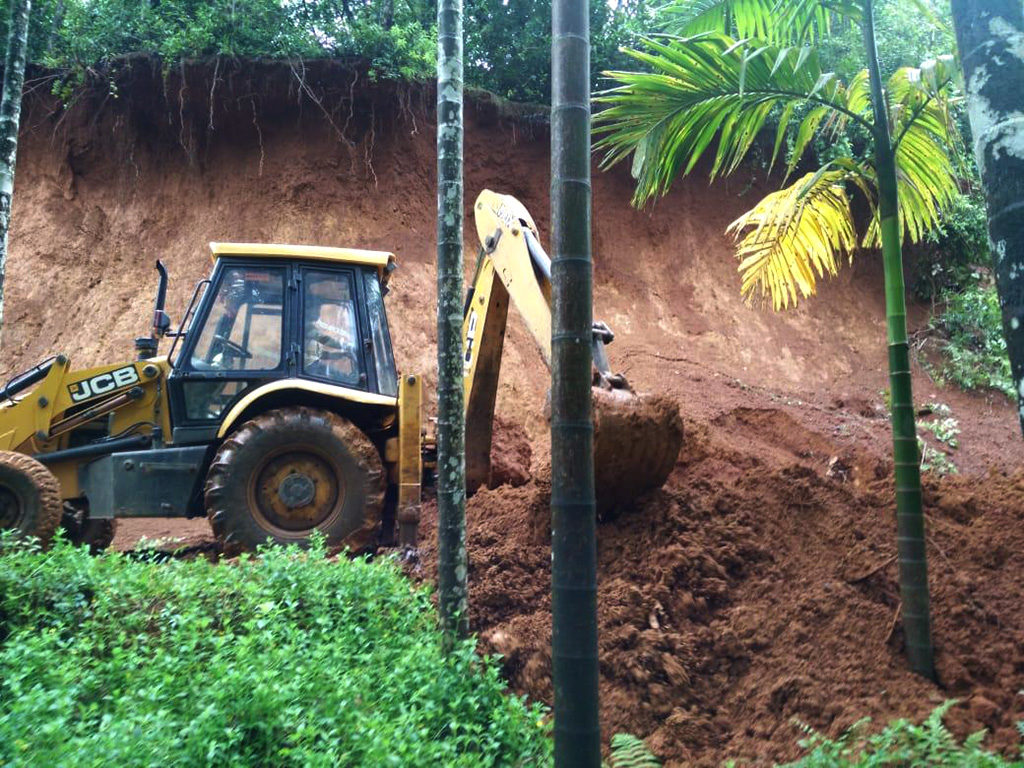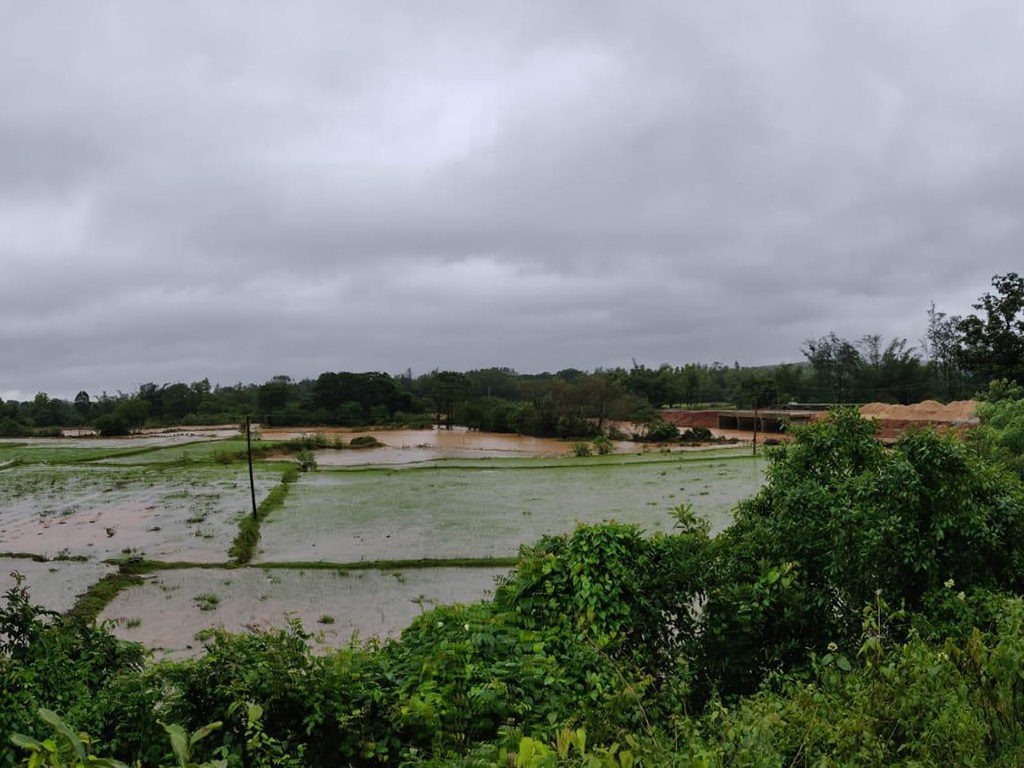Green Minute News
With intense rains battering the Western Ghats bound districts of Karnataka,
India, in the past five days, people not only had to face the fury of the rains but also face unbelievable floods and landslides. Overflowing rivers, inundated fields, sliding slopes, washed away roads, collapsed houses and marooned people indicate the level of destruction and devastation that has happened seemingly overnight.
Thousands of villages spread across Belagavi, Uttar and Dakshin Kannada, Kodagu, Shivamogga and Chikkamagaluru districts have been the worst affected. Among them are farmers who are being tested to the extreme first by monsoon playing truant with its late arrival and then washing away any hope of salvaging their crops amid torrential rains.

Karnataka with 40 per cent cultivation has the largest
arecanut plantations in India. The crop preparation with fungicide spraying is
essential during monsoon. Jaya Pujari from Guddekoppa
village who is a ‘Konegara’ (professional areca nut harvester) and
also a panchayat member is distraught. “This is an important season for
areca nut growers, spraying of fungicide is very important at this time of the
year. But due to the rain we are not able to do anything,” he says
fearing that the arecanut growers will lose the entire crop in the
Malnad region if the rain doesn’t stop soon.
It is not only the arecanut farmers who are suffering. Neelappa Gouda from
Hiregadde village is concerned about his paddy crop. The delayed monsoon
already cost them precious time. We were preparing the land for transplantation,
the deluge started. “Since then it has been devastating rain and crops
can’t withstand such downpours. We are bound to lose the crop, it’s same with
everyone in this region.” says a worried Neelappa.

For others like Prashanth Sampagar who is an IT professional turned farmer, from Thirthahalli, this is a moment of realization. He recalls from his own experience that with trees cut, flattened lands, encroached lakes and rivers, lost natural water drainages that were formed over 100s of years, sand being stolen and bore wells everywhere – humans thought they had tamed the nature but it’s not true. Nature’s response will be brutal. These are all small warnings and now we are getting back what we deserved.
G Veeresh who is a wildlife conservationist shares similar thoughts on flooding in Chikkamagaluru which is the birth place of five rivers. He says, “Shola forest and high density rain forest give sustenance to Tunga, Bhadra, Hemavathi, Vedavathi and Netravathi. It has rained 13-15 inches per day, so rivers are over flowing. The same region had drought last summer. Though heavy rains are not unfamiliar, flooding is entirely new.”

Pointing out the fact that this is a result of over 20 years of degradation and forest destruction, he adds all this is due to mushrooming resorts all across, widening of roads and mini-hydel projects that are becoming a common factor. Absence of EIA in highway projects and rampant mining, quarrying, water storage in private farms is also lending factors to this disaster.
It is high time, we changed our harmful practices and gave respect to nature and forest, says Veeresh. “Man cannot re- build nature but nature can destroy man made structures. This is a warning that Nature has given to Malenadu people, if we don’t wake up now we will suffer a lot in future. The government should not implement any kind of infrastructure projects in Western Ghats otherwise people will have to face the consequences.”

Naturalist Manjunath Nayak also speaks on the same lines as Prashanth and Veeresh observing human greed and intervention is the biggest culprit. He says “The amount of rainfall supposed to fall in June and July has fallen all of a sudden in August.” Recollecting his school days he reflects “We were unable to see clear sun during Shravan month. June-July-August and even some times during September. We received rains in a uniform manner. Every drop of water percolated and there was very less chances of flooding. But now it is no longer the situation.”
Pompayya Malemath, honorary wildlife warden of Ballari also adds that concreting of all roads has left no space for water to percolate to the earth. With no place for the water to go flooding is imperative.


Comment here